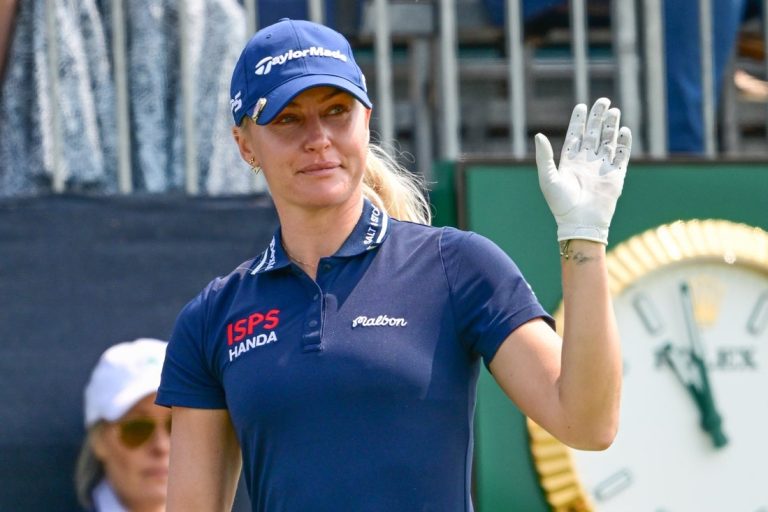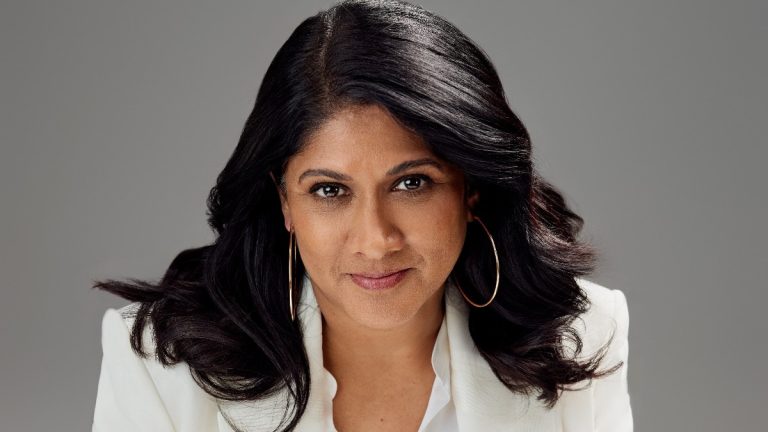Fast cars. Big names. A blockbuster moment that felt like it could redefine how Formula 1 is seen by the world, and maybe, just maybe, by the women who love it.
When F1: The Movie hit cinemas, it delivered on spectacle.
A $144 million global opening weekend. Real race footage. A star-studded cast led by Brad Pitt and Damson Idris. Direction from Joseph Kosinski (Top Gun: Maverick). Even Lewis Hamilton was on board as a producer to keep the film true to the sport. Formula 1’s moment in the spotlight had arrived, loud and cinematic.
The film tells the story of Sonny Hayes, an aging, once-great driver clawing his way back into the paddock. Pitt brings Hayes to life with emotional weight and quiet devastation. There is tragedy in his past, tension in his present, and just enough fire to make the story believable. It is a performance that grounds the film when it needs to be raw and honest.
Alongside Sonny, another character quietly captured a different audience, one that has long waited to see themselves reflected on screen. Kate McKenna, played by Kerry Condon, is introduced as Formula 1’s first female technical director. Her role may be secondary, but her presence is unforgettable.
Condon portrays her with intelligence, sharpness, and a natural command that makes it easy to believe this woman could hold her own on any pit wall in the world. For many women in motorsport, her portrayal feels deeply validating. Even without being the lead, Kate represents something much bigger.
This felt like a huge step forward. A woman in a high-responsibility technical role in a major motorsport film is something rarely seen. McKenna did not need a main storyline to make an impact. She only needed to exist in that role with agency, purpose, and visibility. For a moment, it looked like she would.
But while Condon’s performance was quietly fierce and grounded, the script did not do McKenna justice. She was not written as a strategist, mentor, or leader, but rather to orbit Sonny’s emotional journey.
The most powerful woman in the paddock was reduced to a love interest rather than a decision-maker. For a character with such potential, even in a supporting role, that was a letdown.
No one expected Kate McKenna to steal the spotlight, but she deserved to exist in it fully.
When representation lacks substance, it frustrates more than it inspires. McKenna did not need to lead the film, but she did need to be real. Her presence alone, a woman technical director in a Formula 1 garage, is powerful, but the script failed to give her the scenes to match.
There were no moments where we saw her lead strategy calls, run simulations, challenge rival teams, or navigate race-day pressure. Instead, she became emotionally tethered to Sonny’s redemption arc. She wasn’t shown doing her job, she was shown supporting his.

Brad Pitt and Kerry Condon attend the European Premiere of F1 The Movie. (Photo by Tristan Fewings/Getty Images for Warner Bros. Pictures)
This not only flattens her character but also misses a breakthrough opportunity for women’s representation in motorsport films.
Kerry Condon brought a layered, believable, and commanding performance that made you buy her as someone who belongs on the pit wall, no questions asked.
Yet the writing kept her stuck as “the smart one” in the background and leaned into a familiar trope, the competent woman softened into a romantic subplot for the male lead.
For women who work in or follow motorsport, this storyline felt familiar and frustrating. It’s the experience of being given the title but not the influence. Being in the room but not at the centre of decisions. Watching your work being sidelined while someone else’s journey takes priority.
Representation, when done right, can change entire narratives. But when it is just set dressing, it reminds us that we’re still supporting characters, even in roles we have earned.
Since the film’s release, fan reactions and critics have been vocal. Many praised Condon’s portrayal but expressed disappointment in the film’s reliance on outdated gender stereotypes.
Social media became a hub for discussions about missed opportunities to show women as competent professionals.
One fan summed it up on a popular motorsport forum, “If the only reason F1 included a female race engineer was to manufacture a love interest, then it’s not progress, it’s regression.”
Critics drew parallels to the 2022 film Top Gun: Maverick, which faced similar critiques around the limited roles for women. Industry insiders have echoed calls for richer, more authentic portrayals of women in motorsport moving forward. Even the film’s marketing drew some criticism for its aggressive promotional strategy. Some viewers felt bombarded with content, which led to scepticism about the film’s sincerity in representing women.
F1: The Movie made an important step by putting a female technical director on screen and opening a door long closed. But to truly move forward, future films need to go beyond surface-level inclusion.
Women in motorsport deserve full complexity, power, and narrative focus. Representation without substance is hollow. Hopefully, this film is just the start of authentic stories about women leading in the high-stakes world of Formula 1.
Because if we’re going to celebrate progress, we also need to question who’s still being left behind.







